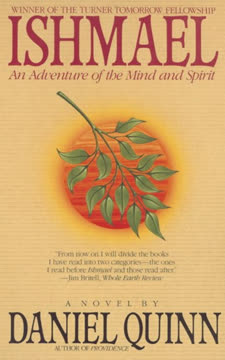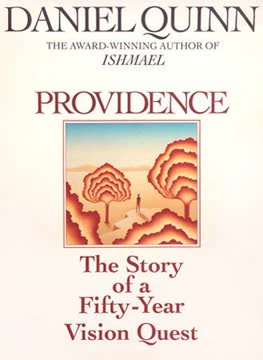Plot Summary
The Teacher's Unusual Ad
A disillusioned narrator, haunted by a lifelong yearning to "save the world," stumbles upon a cryptic newspaper ad: "Teacher seeks pupil. Must have an earnest desire to save the world." Cynical yet compelled, he visits the address, expecting a charlatan. Instead, he finds an empty office, a strange glass partition, and—most astonishingly—a massive, contemplative gorilla named Ishmael. The encounter is unsettling, but the narrator's curiosity overcomes his skepticism. Ishmael, communicating telepathically, reveals himself as the teacher, inviting the narrator into a journey of radical re-examination: not just of his own life, but of the very story humanity tells itself about its place in the world.
Meeting the Gorilla Sage
Ishmael shares his own story: captured from Africa, raised in captivity, and eventually rescued by a grieving Holocaust survivor, Walter Sokolow, who recognized Ishmael's intelligence and taught him language and history. Ishmael's life is marked by captivity, both literal and metaphorical, and he becomes obsessed with understanding the nature of captivity itself. He has had other pupils, but failed to reach them. Now, he challenges the narrator to see that humans, too, are captives—trapped by a civilizational story that compels them to destroy the world, even as they yearn to save it. The stage is set for a Socratic Dialogue that will unravel the roots of humanity's self-destruction.
Stories That Shape Us
Ishmael introduces the idea that every culture enacts a story—a myth that explains the world, the gods, and human destiny. Most people are unaware of their own culture's story, because it is so pervasive it becomes invisible. Through analogy with Nazi Germany, Ishmael shows how a society can be held captive by a story, even if individuals don't consciously believe it. The narrator is challenged to articulate the "creation myth" of his own culture, which, upon examination, is revealed to be a myth of human supremacy: the world was made for man, and man is destined to rule it. This myth, Ishmael argues, is the root of humanity's ecological crisis.
The Myth of Human Destiny
The narrator, prompted by Ishmael, reconstructs the dominant myth: the universe was created for man, who is the pinnacle of evolution. For millions of years, humans lived like other animals, but then discovered agriculture, settled, and began to "conquer" the world. This conquest, seen as fulfilling human destiny, is justified by the belief that humans are fundamentally flawed and must be guided by prophets and laws. Ishmael exposes the myth's fatal flaw: it casts humanity as the enemy of the world, justifying endless exploitation and destruction. The myth is so deeply embedded that it pacifies people, even as they witness the world's unraveling.
The Takers and Leavers Divide
Ishmael introduces the terms "Takers" (modern, agricultural, "civilized" people) and "Leavers" (tribal, indigenous, "primitive" peoples). Takers believe their way is the only right way, and seek to impose it on all others. Leavers, by contrast, enact a different story: they belong to the world, living in accordance with its laws, not above them. The Taker story is not a second chapter of the Leaver story, but a separate, contradictory narrative. The Taker revolution—agriculture—was not a technological event, but a spiritual and cultural rupture, a rejection of the evolutionary path that had shaped humanity for millions of years.
The Prison of Civilization
Ishmael likens modern civilization to a prison: a system that compels its inmates to consume the world, regardless of their individual desires. The Taker story is enforced not just by laws, but by the very structure of society—those who refuse to participate are denied food and survival. Even the redistribution of power within the prison (e.g., gender or racial justice) does not address the deeper problem: the prison itself. The only way out is to recognize the story that built the prison, and to imagine a new one. The narrator is forced to confront his own complicity and the futility of seeking salvation within the system's terms.
The Law of Limited Competition
Ishmael guides the narrator to discover a fundamental law that governs all life: the law of limited competition. In the natural community, species may compete for resources, but do not wage total war on competitors, destroy their food, or deny them access to life. This law fosters diversity and resilience. The Takers, however, have exempted themselves from this law, seeking to eliminate all competitors and monopolize the world's resources. This is not a unique human flaw, but a biological inevitability for any species that breaks the law. The result is ecological collapse, not because humans are evil, but because they are enacting a story that puts them at war with the world.
The Fall and the Forbidden Fruit
Ishmael re-examines the biblical story of the Fall, the Tree of Knowledge, and Cain and Abel. He reveals that these stories originated not with the Takers, but with their Leaver neighbors—the Semites—who witnessed the rise of agriculturalists and their violent expansion. The "knowledge of good and evil" is the presumption to decide who shall live and who shall die, a power reserved for the gods. By taking this power, the Takers set themselves apart, justifying the extermination of others and the domination of nature. The myth, misunderstood by its inheritors, is actually a warning: those who claim godlike power will bring about their own destruction.
The Roots of Cultural Amnesia
The Taker revolution was not just a change in subsistence, but a rupture with the accumulated wisdom of millions of years. Leaver cultures pass down knowledge of what works well for people; Taker culture discards this in favor of knowledge about what works for things—production, control, and growth. The result is cultural amnesia: a people cut off from their own evolutionary history, convinced that their way is the only way, and that the past is irrelevant or shameful. This amnesia is reinforced by "Mother Culture," the voice of civilization, which teaches that the past is dreck and that only progress matters.
The Leaver Story Unveiled
Ishmael finally articulates the Leaver story: man belongs to the world, not the other way around. For three million years, humans lived as part of the community of life, evolving, adapting, and passing on wisdom about what works. The Leaver story is not about hunting and gathering per se, but about living in accordance with the law of limited competition, leaving room for all other forms of life to flourish. Civilization, settlement, and even agriculture are not inherently destructive—if practiced within the law. The Leaver story offers a vision of hope: a way for humans to be part of, rather than apart from, the world.
The End of Evolution
By taking themselves out of the hands of the gods—out of the evolutionary process—the Takers have ended their own story. Evolution continues only for those who remain part of the community of life. The Taker premise ("the world belongs to man") leads inevitably to the end of creation, as humans seek to eliminate all competitors and control all resources. The Leaver premise ("man belongs to the world") allows creation to continue, with humans as one participant among many. The choice is stark: continue the Taker story and face extinction, or rediscover the Leaver story and allow both humanity and the world to thrive.
The Search for Hope
The narrator, desperate for a way to "save the world," asks Ishmael for a program, a plan. Ishmael insists that no program will work unless people change the story they are enacting. The first step is to recognize the myth, to teach others, and to inspire a new vision. The collapse of Marxism in Eastern Europe is offered as an example: when people are inspired by a new story, change can happen rapidly. The narrator is daunted, but Ishmael reminds him that even small efforts can have ripple effects. The real work is to "teach a hundred what I've taught you, and inspire each of them to teach a hundred."
The Final Lesson
Circumstances force Ishmael into a carnival sideshow, where he soon dies of pneumonia. The narrator, too late to save him, is left with Ishmael's books and a final message: "With man gone, will there be hope for gorilla? With gorilla gone, will there be hope for man?" The story ends not with triumph, but with a challenge. The narrator—and the reader—are left to carry forward the lesson: to question the story of human supremacy, to rediscover the law of life, and to imagine a new story in which humans belong to the world, and the world is allowed to go on.
Characters
Ishmael
Ishmael is a gorilla of extraordinary intelligence, rescued from captivity and educated by a human benefactor. He is both a literal captive and a metaphorical one, obsessed with understanding the nature of captivity—of animals, of humans, and of the world itself. As a teacher, he is Socratic, patient, and sometimes exasperated, guiding his pupils to discover uncomfortable truths for themselves. Ishmael's psychological depth comes from his outsider status: he sees human culture with both empathy and critical distance. His development is marked by a growing urgency to teach, even as he recognizes the difficulty of changing minds. His death is both a personal tragedy and a symbol of the world's precarious state.
The Narrator
The unnamed narrator is a disaffected intellectual, haunted by a youthful desire to "save the world" but paralyzed by cynicism and cultural inertia. His relationship with Ishmael is at first skeptical, then increasingly intimate and transformative. Psychologically, he is marked by alienation, self-doubt, and a deep hunger for meaning. Through his dialogue with Ishmael, he confronts his own complicity in the destruction of the world, as well as his powerlessness. His development is a journey from passive despair to active questioning, and finally to a sense of responsibility: to teach, to inspire, and to imagine a new story.
Walter Sokolow
Walter Sokolow is a wealthy Jewish merchant who, after losing his family in the Holocaust, rescues Ishmael from a menagerie. He becomes Ishmael's first teacher, companion, and "family." Sokolow's psychological wounds—guilt, grief, and a longing for connection—mirror the larger themes of captivity and loss. His relationship with Ishmael is one of mutual healing and intellectual partnership. Sokolow's death marks a turning point, leaving Ishmael vulnerable and setting the stage for new pupils.
Rachel Sokolow
Rachel is Walter's daughter, raised in part by Ishmael, who becomes her mentor and surrogate sibling. She is highly intelligent, compassionate, and fiercely loyal to Ishmael, using her inheritance to provide for him after her father's death. Rachel represents the possibility of cross-species understanding and the hope for a new kind of relationship between humans and the rest of the living world. Her death precipitates Ishmael's final captivity and demise.
Mother Culture
Mother Culture is not a person, but the personification of the dominant cultural narrative—the "humming in the background" that shapes beliefs, values, and behaviors. She is nurturing yet tyrannical, soothing yet stifling, teaching that the Taker way is the only way. Psychologically, Mother Culture represents the internalized voice of authority, tradition, and conformity. Her power lies in her invisibility: most people do not even realize they are listening to her.
The Takers
The Takers are not individuals, but the collective identity of modern, agricultural, "civilized" humanity. They are defined by their story: the world was made for man, and man is destined to rule it. Psychologically, the Takers are marked by anxiety, alienation, and a desperate need for control. Their relationships—with each other, with other cultures, and with the natural world—are characterized by domination, competition, and exclusion. Their development is a tragic arc: from optimism and conquest to crisis and potential collapse.
The Leavers
The Leavers are the world's tribal, indigenous, and "primitive" peoples, united not by technology or subsistence, but by a story: man belongs to the world. Psychologically, the Leavers are marked by humility, adaptability, and a sense of belonging. Their relationships are inclusive, allowing for diversity and coexistence. Their development is evolutionary, not revolutionary: they change slowly, in response to what works, rather than seeking to impose a single right way.
Walter Sokolow's Wife
Walter's wife is suspicious and hostile toward Ishmael, seeing him as a threat to her family and social standing. She represents the fear and resistance that often greet new ideas or outsiders. Her psychological rigidity contrasts with the openness of Walter and Rachel, highlighting the challenges of cultural change.
Art Owens
Art Owens is the hard-nosed owner of the carnival where Ishmael ends his life. He is pragmatic, unsentimental, and uninterested in Ishmael's intelligence or suffering. Owens represents the impersonal forces of exploitation and commodification that pervade the Taker world.
The Narrator's Predecessors
Ishmael mentions four previous pupils, all of whom failed to grasp or act on his teachings. They represent the difficulty of changing minds and the persistence of cultural captivity. Their failures haunt both Ishmael and the narrator, raising the stakes for the current pupil's journey.
Plot Devices
Socratic Dialogue
The novel's structure is a series of dialogues between Ishmael and the narrator, modeled on the Socratic method. Ishmael rarely gives direct answers; instead, he asks probing questions that force the narrator (and the reader) to confront their own assumptions. This device creates a sense of discovery and personal investment, making the philosophical arguments feel urgent and lived.
Creation Myth Reinterpretation
Ishmael's reinterpretation of the Genesis story is a central plot device, transforming a familiar religious myth into a coded critique of civilization. By revealing the story's Leaver origins, Ishmael exposes the Taker narrative as a usurpation, not a universal truth. This device allows the novel to bridge anthropology, theology, and ecology, making abstract ideas concrete and emotionally resonant.
Allegory and Metaphor
Ishmael's literal captivity mirrors the metaphorical captivity of humans within their own cultural story. The menagerie, the glass partition, and the carnival sideshow all serve as allegories for the ways in which individuals and societies are trapped by their own narratives. These metaphors deepen the psychological and existential stakes of the story.
Foreshadowing and Irony
From the beginning, there are hints that Ishmael's time is limited, and that the narrator may fail to save him. The repeated motif of failed pupils, the narrator's procrastination, and the eventual death of Ishmael all foreshadow the difficulty of real change. The irony of the narrator's quest—to save the world, but failing to save his own teacher—underscores the novel's themes of urgency and loss.
Framing Device
The novel is framed by the narrator's search for meaning, sparked by the mysterious ad. This device grounds the philosophical dialogue in a personal quest, making the stakes immediate and relatable. The framing also allows for a sense of closure and challenge: the narrator, now the "teacher," must carry the story forward.
Analysis
is a philosophical novel that uses the unlikely device of a telepathic gorilla to interrogate the deepest assumptions of modern civilization. At its core, the book is a critique of the myth of human supremacy—the belief that the world was made for man, and that man is destined to rule it. Quinn argues that this story, so pervasive as to be invisible, is the root of ecological destruction, alienation, and despair. By contrasting the "Taker" story with the "Leaver" story—a narrative of belonging, humility, and coexistence—Ishmael
offers both a diagnosis and a prescription. The lesson is not to return to a romanticized past, but to rediscover the law of life: to live as part of the community of life, not as its conqueror. The novel's enduring power lies in its ability to make the familiar strange, to challenge readers to see their own culture as a story—one that can be changed. In an age of environmental crisis, Ishmael
remains a call to awaken, to imagine new possibilities, and to take responsibility for the stories we enact.
Last updated:
FAQ
Synopsis & Basic Details
What is Ishmael: An Adventure of the Mind and Spirit about?
- A Disillusioned Seeker's Quest: The novel follows an unnamed narrator, a writer deeply cynical about humanity's future, who answers a cryptic newspaper ad seeking a pupil with "an earnest desire to save the world." This leads him to a most unexpected teacher: a telepathic gorilla named Ishmael.
- Unraveling Civilization's Core Myth: Through a series of Socratic Dialogues, Ishmael guides the narrator to uncover the hidden "story" that modern, "Taker" civilization has been enacting for the past ten thousand years. This story, a myth of human supremacy, posits that the world was made for man to conquer and rule, leading to humanity's current ecological and existential crisis.
- Discovering an Alternative Way: Ishmael contrasts the Taker story with the "Leaver" story, enacted by indigenous cultures for millions of years, which holds that man belongs to the world. The novel explores the profound implications of these two opposing premises, offering a radical reinterpretation of human history, the Genesis myth, and the potential path to a sustainable future.
Why should I read Ishmael: An Adventure of the Mind and Spirit?
- Challenges Core Assumptions: Ishmael forces readers to question deeply ingrained beliefs about human nature, progress, and our place in the natural world, making the invisible "Mother Culture" visible and debatable. It's a profound philosophical journey that can fundamentally shift one's worldview.
- Offers a New Historical Paradigm: The book provides a compelling, albeit controversial, reinterpretation of human history, particularly the agricultural revolution and the Genesis story, presenting them not as triumphs but as pivotal moments of rupture from a sustainable way of life. This offers a fresh lens on humanity's past and present.
- Inspires Action and Hope: Despite its stark critique of modern civilization, Ishmael ultimately offers a powerful vision of hope. It suggests that by changing the story we enact, humanity can move from a path of self-destruction to one of belonging and co-existence, inspiring readers to become agents of this change.
What is the background of Ishmael: An Adventure of the Mind and Spirit?
- Philosophical Inquiry into Human Crisis: Daniel Quinn wrote Ishmael as a direct response to the perceived environmental and societal crises of the late 20th century, aiming to uncover the root cause of humanity's destructive trajectory. The book is less a conventional novel and more a philosophical treatise presented in narrative form.
- Socratic Method as Narrative Structure: The entire book is structured as a Socratic dialogue, a teaching method where Ishmael, the teacher, asks questions that lead the narrator (and thus the reader) to discover truths for themselves. This pedagogical approach is central to the book's impact, making the reader an active participant in the intellectual journey.
- Interdisciplinary Synthesis: Quinn draws heavily from anthropology, ecology, mythology, and religious texts (particularly Genesis) to construct his arguments. This interdisciplinary approach allows him to weave together scientific observations with ancient wisdom, creating a comprehensive critique of modern human culture.
What are the most memorable quotes in Ishmael: An Adventure of the Mind and Spirit?
- "With man gone, will there be hope for gorilla? With gorilla gone, will there be hope for man?": This poignant, symmetrical question, presented on Ishmael's poster, encapsulates the novel's central dilemma and the interconnectedness of all life, serving as a powerful call to reflection on humanity's impact.
- "You're captives of a civilizational system that more or less compels you to go on destroying the world in order to live.": Ishmael's blunt assessment of humanity's predicament highlights the systemic nature of the problem, moving beyond individual blame to indict the very structure of Taker society.
- "There's nothing fundamentally wrong with people. Given a story to enact that puts them in accord with the world, they will live in accord with the world.": This quote offers a profound message of hope and agency, shifting the focus from inherent human evil to the power of narrative in shaping behavior and destiny.
What writing style, narrative choices, and literary techniques does Daniel Quinn use?
- Direct, Conversational Prose: Quinn employs a clear, unadorned writing style, making complex philosophical ideas accessible. The dialogue-driven narrative feels like an intimate conversation, drawing the reader directly into the intellectual exchange between Ishmael and the narrator.
- Allegory and Metaphor: The novel heavily relies on allegorical figures like "Mother Culture," "Takers," and "Leavers," and extended metaphors such as civilization as a "prison" or an "airman in free fall." These techniques simplify abstract concepts and make the book's arguments more vivid and memorable.
- Socratic Pedagogy and Revelation: The primary narrative choice is the Socratic method, where Ishmael rarely provides answers directly but guides the narrator through a series of questions and thought experiments. This technique fosters a sense of personal discovery and intellectual engagement, making the reader feel as if they are uncovering the truths alongside the narrator.
Hidden Details & Subtle Connections
What are some minor details that add significant meaning?
- The Office's Olfactory Detail: The narrator's initial impression of the office reeking "of the circus—no, not the circus, the menagerie" (Chapter 1) subtly foreshadows Ishmael's literal captivity and the commodification of nature, hinting at the underlying theme of the world as a spectacle for human consumption.
- Ishmael's Book Collection: The small bookcase containing "thirty or forty volumes, mainly on history, prehistory, and anthropology" (Chapter 1) reveals Ishmael's intellectual foundation, emphasizing that his wisdom is not mystical but derived from rigorous study of human and natural history, grounding his radical ideas in empirical observation.
- Mrs. Sokolow's Persistent Antagonism: Walter Sokolow's wife's "agitating for Ishmael's speedy removal or disposal" (Chapter 4) is a minor character detail that symbolizes the broader societal resistance to anything that challenges the dominant Taker narrative, highlighting how deeply ingrained the fear of the "other" and the rejection of non-human intelligence can be.
What are some subtle foreshadowing and callbacks?
- The Narrator's Initial Cynicism: The narrator's opening outburst, "I choked and cursed and spat and threw the paper to the floor" (Chapter 1), foreshadows his deep-seated disillusionment and the profound emotional upheaval his journey with Ishmael will entail, setting the stage for a personal transformation beyond mere intellectual understanding.
- Ishmael's Failed Pupils: Ishmael's admission of having "had four, and failed with all four" (Chapter 6) serves as a subtle warning and raises the stakes for the narrator, implying the immense difficulty of truly internalizing and acting upon the teachings, and foreshadowing the narrator's own struggles with the message.
- The "Airman in Free Fall" Analogy: The extended metaphor of the airman who believes he is flying but is actually in "free fall" (Chapter 6) is a powerful callback to the Taker civilization's trajectory, subtly predicting its inevitable crash and reinforcing the idea that perceived progress can mask underlying unsustainability.
What are some unexpected character connections?
- Walter Sokolow's Holocaust Grief and Ishmael's Captivity: Walter Sokolow's decision to rescue Ishmael stems from his profound grief over his family's loss in the Holocaust, seeing Ishmael as a "dreadful substitute for the family he had failed to rescue from the cage of Europe" (Chapter 4). This unexpected connection links human historical trauma to the broader theme of captivity, suggesting a shared experience of suffering and a search for meaning across species.
- Rachel Sokolow as Ishmael's "Twin": Rachel, Walter's daughter, develops a bond with Ishmael "likened to the one that exists between identical twins—except that I was brother, pet, tutor, and nurse all rolled into one" (Chapter 5). This unique, almost symbiotic relationship highlights the potential for deep, non-hierarchical connection between humans and other species, contrasting sharply with the Taker's dominant paradigm.
- The Narrator's Emotional Dependence on Ishmael: The narrator's "depression and rejection" (Chapter 7) when Ishmael sends him away to work alone reveals an unexpected emotional dependency, transforming their intellectual relationship into a deeply personal one. This connection underscores the human need for guidance and the profound impact a true teacher can have, even if that teacher is a gorilla.
Who are the most significant supporting characters?
- Walter Sokolow, The Grieving Benefactor: Walter Sokolow is crucial not only for rescuing and educating Ishmael, but also for embodying the human capacity for profound empathy and intellectual curiosity in the face of immense personal tragedy. His story provides the emotional and historical context for Ishmael's unique wisdom, linking the Holocaust to the broader themes of captivity and liberation.
- Rachel Sokolow, The Loyal Protector: Rachel represents the next generation's potential for understanding and stewardship. Her unwavering loyalty and financial support for Ishmael, even against her mother's wishes, demonstrate a rare cross-species bond and a commitment to the values Ishmael embodies, making her a symbol of hope for a different human future.
- Mr. Partridge, The Gatekeeper of the Old Order: The Sokolow family's butler, Mr. Partridge, initially appears as a minor character, but his formal, unyielding demeanor and his role in guarding the family's secrets (including Rachel's death) symbolize the entrenched, often indifferent, forces that protect the status quo and resist radical change, even when it's for the greater good.
Psychological, Emotional, & Relational Analysis
What are some unspoken motivations of the characters?
- Narrator's Fear of Inaction: The narrator's initial indignation at Ishmael's ad, and his later anxiety about "impure thoughts about saving the world" (Chapter 8), reveal an unspoken motivation: a deep-seated fear of his own powerlessness and the futility of his youthful idealism, which he masks with cynicism.
- Ishmael's Urgency to Impart Knowledge: Despite his calm demeanor, Ishmael's repeated attempts to find a pupil and his exasperation with the narrator's slowness ("You've become a passive listener here," Chapter 11) suggest an unspoken, profound urgency to transmit his knowledge before it's too late, driven by the impending ecological catastrophe.
- Walter Sokolow's Search for Redemption: Walter Sokolow's rescue of Ishmael, following the loss of his family in the Holocaust, is motivated by an unspoken desire for redemption. By saving Ishmael, he attempts to atone for his perceived failure to save his own family, projecting his need for meaning onto the intelligent gorilla.
What psychological complexities do the characters exhibit?
- The Narrator's Cynical Idealism: The narrator is a complex blend of deep cynicism and an underlying, almost desperate, idealism. He claims to have given up on "saving the world" but is irresistibly drawn to Ishmael's ad, showcasing a psychological struggle between intellectual despair and an enduring, if suppressed, hope for change.
- Ishmael's Detached Empathy: Ishmael, as an outsider, exhibits a unique psychological complexity: a profound empathy for humanity's plight, coupled with an intellectual detachment that allows him to analyze human culture without being fully immersed in its delusions. This balance enables him to be a compassionate yet unsparing teacher.
- Mother Culture's Insidious Comfort: "Mother Culture" is a psychologically complex antagonist, personifying the comforting yet ultimately destructive narratives that pacify humanity. She represents the internalized voice of tradition and conformity, making it psychologically difficult for individuals to question the very stories that define their existence.
What are the major emotional turning points?
- The Revelation of Humanity's Captivity: A major emotional turning point occurs when the narrator grasps that humans are "captives of a civilizational system that more or less compels you to go on destroying the world in order to live" (Chapter 6). This realization shifts his perspective from individual blame to systemic understanding, evoking a sense of shared predicament and urgency.
- The Horror of the "Knife-Edge of Survival" Myth: The narrator's emotional revulsion at the fabricated "grim life" of hunter-gatherers (Chapter 11), even after intellectually debunking it, marks a turning point. It highlights the deep emotional conditioning by "Mother Culture" and the psychological barrier to embracing an alternative, non-Taker way of life.
- Ishmael's Death and the Narrator's Inheritance: Ishmael's death (Chapter 13) is the ultimate emotional turning point, transforming the narrator from a pupil into the inheritor of Ishmael's mission. The grief and sense of loss underscore the urgency of the message and the personal responsibility now placed upon the narrator to carry it forward.
How do relationship dynamics evolve?
- From Skeptical Pupil to Committed Disciple: The narrator's relationship with Ishmael evolves from initial skepticism and intellectual curiosity to a deep, almost filial, commitment. He initially views Ishmael as a "charlatan" (Chapter 1) but eventually sees him as a profound teacher, culminating in his desperate, albeit futile, attempt to rescue him.
- Ishmael's Mutual Healing with Walter Sokolow: Ishmael's relationship with Walter Sokolow is one of mutual healing. Walter, grieving the Holocaust, finds solace and purpose in educating Ishmael, while Ishmael gains language and a deeper understanding of captivity. This bond transcends species, demonstrating a profound interdependency.
- Humanity's Relationship with the World as War: The novel fundamentally redefines humanity's relationship with the world, portraying it as a state of "war" rather than stewardship. Ishmael argues that the Taker story casts "mankind as the enemy of the world" (Chapter 5), leading to a destructive dynamic that must be recognized and reversed.
Interpretation & Debate
Which parts of the story remain ambiguous or open-ended?
- The Practicality of "Inventing" a New Way: While Ishmael urges the narrator to "invent" a new way of living for Takers (Chapter 12), the specific practical steps for a global civilization to transition from the Taker story to the Leaver story remain largely open-ended. The book provides the philosophical framework but leaves the concrete implementation to the reader's imagination and collective action.
- The Nature of "The Gods": Ishmael frequently refers to "the gods" in his reinterpretation of Genesis and the Leaver story, but their literal existence or nature is left ambiguous. The narrator himself states, "I myself very much doubt that gods have anything to do with it" (Chapter 12), suggesting that "the gods" can be interpreted as natural laws or the inherent wisdom of the universe, rather than anthropomorphic deities.
- The Scale and Timeline of Change: The novel doesn't offer a clear timeline or guarantee of success for changing humanity's story. Ishmael acknowledges the daunting task, comparing it to Saint Paul's mission (Chapter 12), leaving the ultimate outcome of humanity's choice—survival or extinction—as an open question for the future.
What are some debatable, controversial scenes or moments in Ishmael: An Adventure of the Mind and Spirit?
- The Famine Discussion and Population Control: Ishmael's assertion that "increasing food production doesn't feed your hungry, it only fuels your population explosion" (Chapter 7) and his critique of humanitarian aid as perpetuating famine is highly controversial. This challenges deeply held beliefs about compassion and intervention, sparking debate on the ethics of population control and resource distribution.
- The "Killing Off" of Leavers by Takers: The reinterpretation of Cain and Abel as an allegory for the agriculturalists (Cain) "killing off" the pastoralists (Abel) (Chapter 9) is a stark and potentially unsettling historical claim. This reframing of biblical narrative as a justification for violence and expansion can be debated for its historical accuracy and its implications for religious interpretation.
- The Idea of "Cultural Amnesia": The concept that Taker culture has suffered a "total" memory loss of its pre-agricultural past (Chapter 10) and that "the past is dreck" is a provocative claim. While it serves to highlight the rupture caused by the agricultural revolution, some might argue it oversimplifies the continuity and evolution of human knowledge and traditions.
Ishmael: An Adventure of the Mind and Spirit Ending Explained: How It Ends
Review Summary
Ishmael polarizes readers, with many praising its thought-provoking ideas about humanity's relationship with nature and civilization. Some find it life-changing, while others criticize it as simplistic or unrealistic. The book uses a Socratic dialogue between a man and a telepathic gorilla to challenge cultural assumptions and explore ecological themes. Critics argue it romanticizes primitive lifestyles, while supporters appreciate its call for environmental awareness. Many readers find the book's philosophical approach engaging, though some find the writing style or premise off-putting.
Similar Books
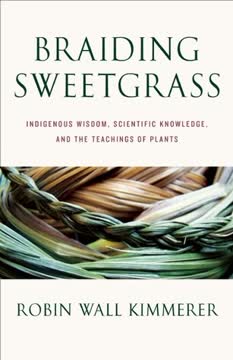
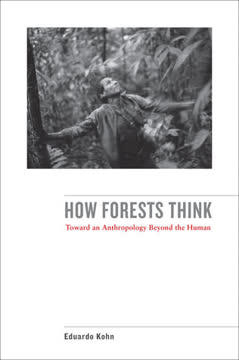
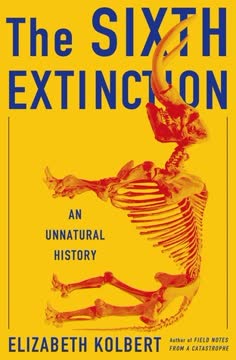
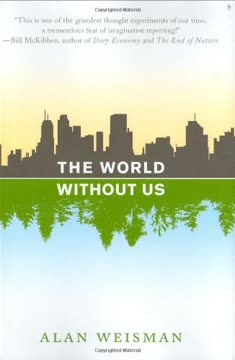
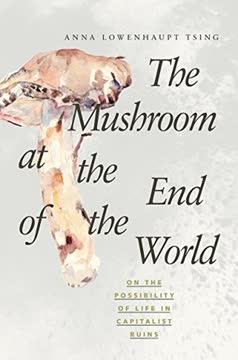
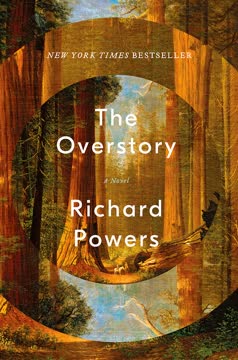
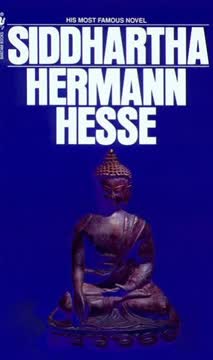
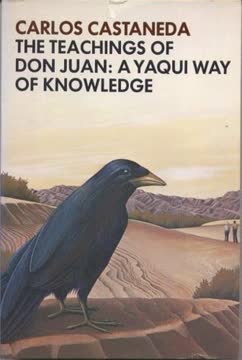
Download PDF
Download EPUB
.epub digital book format is ideal for reading ebooks on phones, tablets, and e-readers.
